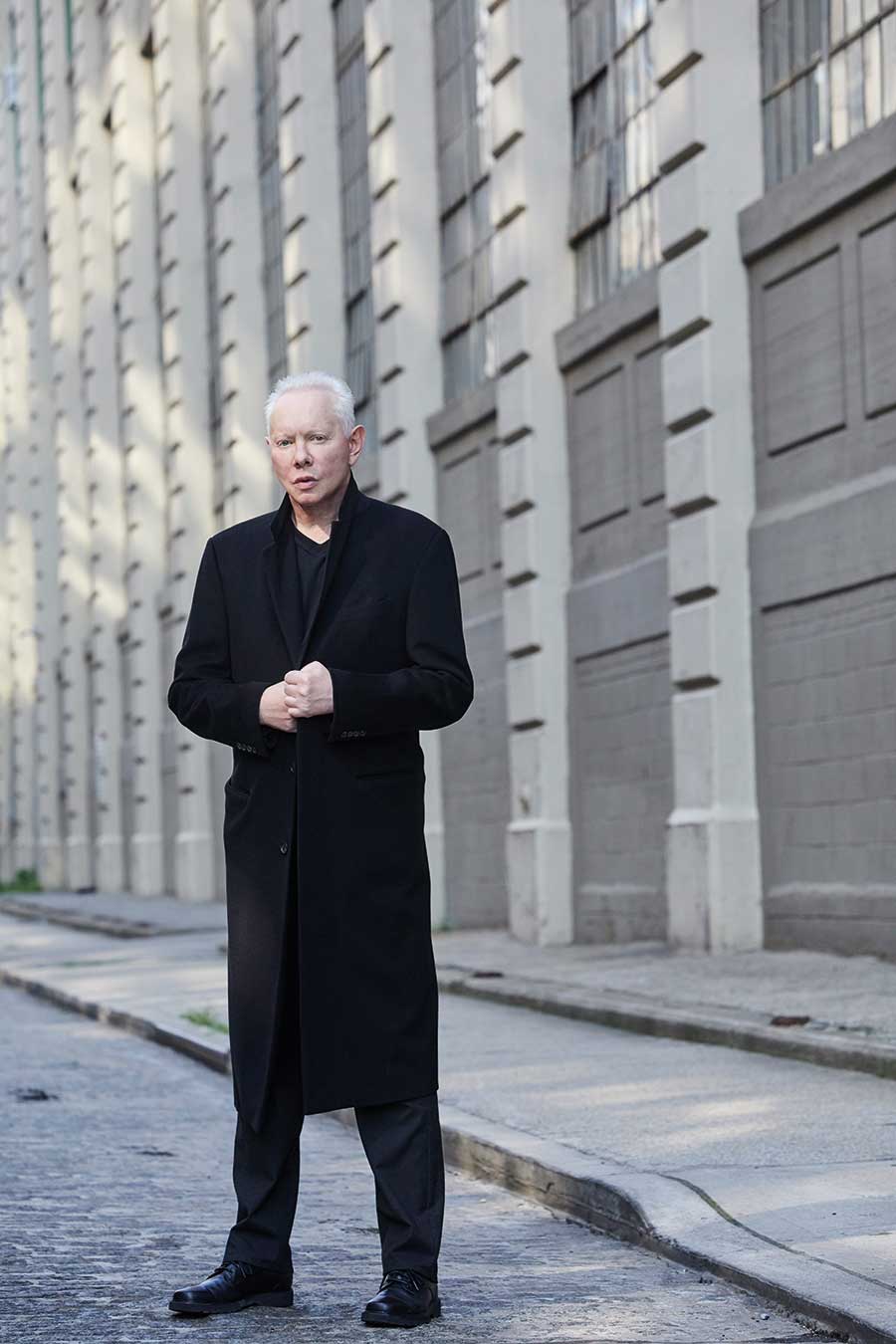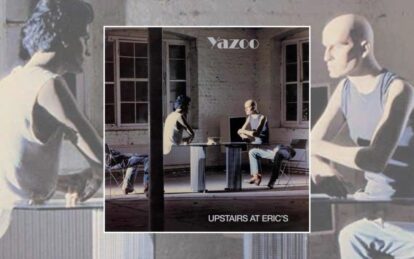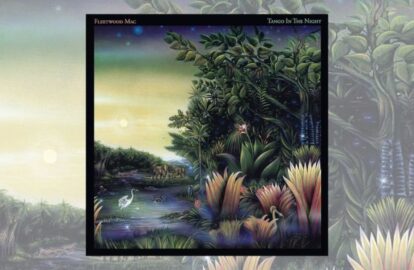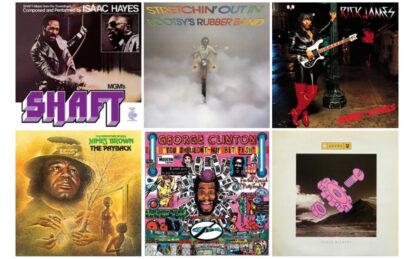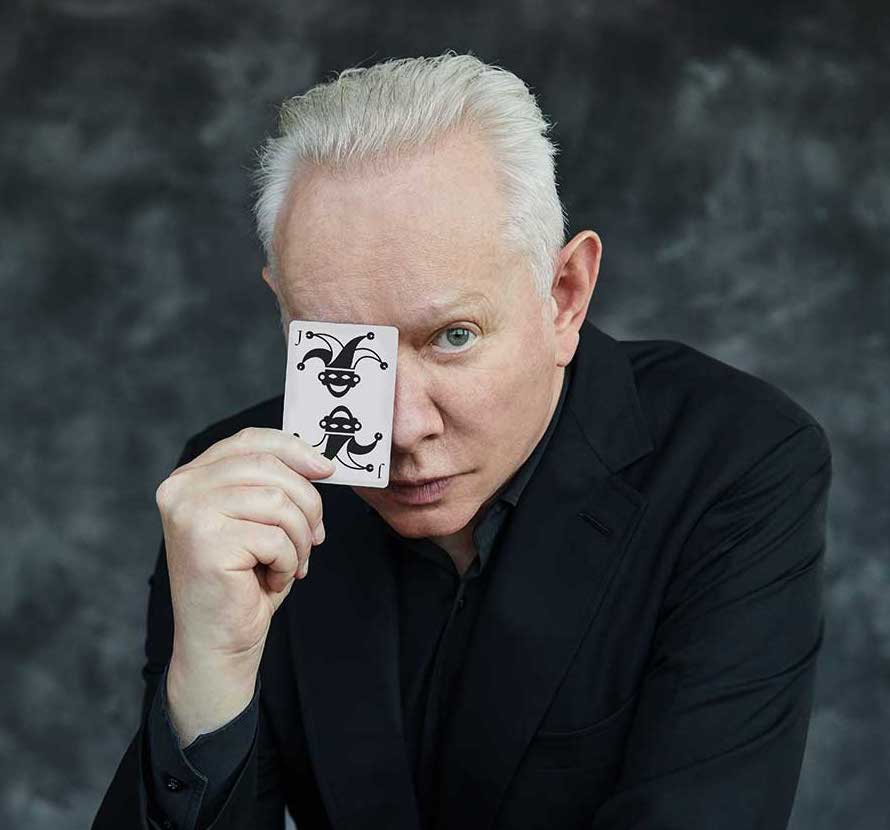
Joe Jackson, playing the Fool
Wrongly pegged as an ‘angry young man’, the ever-restless singer-songwriter Joe Jackson has delved into everything from power pop to jazz and classical. In this archive interview from 2019, he talked to us about his then-latest album, Fool… By David Burke
Joe Jackson doesn’t strike you as someone who’s all that bothered about anniversaries, preferring to remain in the present rather than return to the past. But 40 years after his debut album, Look Sharp!, perceptively described by eminent critic Greil Marcus as “clean, fresh and just a bit mean”, he’s decided to indulge himself in a spot of nostalgia – on his own terms, of course.
Firstly, there’s a rather brilliant new release, Fool, followed by a spring tour that will mine five albums – each representing a decade – for material. He’s also promised to “throw in a couple of songs from other albums and some new covers”.
Jackson explains: “When I realised that it was going to be 40 years since the first album, I didn’t really know what to do because it was shocking. But then the more I thought about it, the more I reasoned, ‘Well, there’s no point pretending it’s not happening.’ So, if we could use it in any way to celebrate the fact that I’m still around, and have a new album coming out, then we might as well. But it’s not like I haven’t played live in 20 years and it’s some big comeback, because I never went anywhere.”
Indeed he didn’t. Since his 80s chart apogee, Jackson has continued to turn out an estimable body of work that has strayed from the post-punk zeitgeist of his early releases onto more elevated terrain, including a tribute to jazz great Duke Ellington and a Grammy Award-winning symphony.
So, how does he judge his evolution over the past 40 years?
“I just think I’ve got better. I mean, in some ways I feel it’s undeniable. I’m a much better singer, a much better piano player than when I started. I think I’m a better songwriter as well, but, you know, that’s subjective. And you’re always up against the nostalgia factor, where people will say, no matter what you do, ‘Oh, it’s not as good as the first album.’ I don’t lose sleep over it. I’m very much thinking about what I’m doing now and what I’m going to do next, always.”
The eight songs on Fool are what he ended up with “after a couple of years of trying out a lot of different ideas”. Or, as he puts it more dramatically, “The road to this album is littered with the wrecks of songs and half-songs that didn’t make the grade.”

Joe Jackson, 2019
Comedy and tragedy are the twin themes that dominate the collection – and both of them seem to coalesce, uncomfortably, in the presidency of one Donald J. Trump. But Jackson, a former resident of and still frequent visitor to, the United States won’t be drawn on the White House incumbent.
“Regardless of who the President is right now, I think it’s very bitterly divided [in America]. That’s been going on for quite a while. I don’t particularly want to talk about him, to be honest. I don’t know why he has to get dragged into every conversation. I think it’s more than one person. I think it’s kind of become very tribal, in a way. People’s attitudes have become very hardened to, ‘We’re the good guys and they’re the bad guys’. It’s a shame.”
Fool deals in fear and anger, alienation and loss, but also “the things that make life worth living – friendship, laughter and music, or art itself. I couldn’t have done this in 1979. I just hadn’t lived enough.”
Hot shoe show
What he was doing in 1979, was releasing Look Sharp!, the sleeve of which ranked at No.22 on Rolling Stone magazine’s 100 greatest covers of all time. Who can forget those white pointy shoes and dangerously creased black slacks? The critics loved the album – NME raved about its “ringing, contoured pop melodies, the jaundiced, sceptical lyrics and the crisp vocals” that recalled Elvis Costello.
What does Jackson hear when he listens – if he listens – to it now?
“What I hear is London, 1978. The first two albums, really, because I would say I’m The Man is kind of Part Two of Look Sharp!. They kind of go together as one album. Probably they’re the only things I’ve ever done that are very much the product of a time and place and the age I was at that point, being influenced by what was around me. I think by the time I got to Night And Day I was just doing my own thing, not really caring about what anyone else was doing.
“They were absolutely what I wanted to do at the time, but I think they were just a little bit contrived in terms of being the right sound for the time. There’s a fine line here – I wouldn’t say they were phoney or anything, but, yeah, that’s the most influenced I was by the general vibe at the time.
“If you put those albums together, they make one really strong LP. There are a few tracks that make me cringe, as there is on some of my subsequent stuff, my early material. Less so as I go along.”
Lazy journalists lumped him in with Costello, Nick Lowe and Graham Parker as part of a nebulous movement demarcated by guitar, bass, drums and piss and vinegar after 1977, the red-letter year in British music.
“I didn’t feel like I was part of a movement, or anything like that. But Graham Parker in particular was an influence. When I heard him I thought, ‘Blimey, here’s someone who can’t sing’, in a similar way to how I can’t sing, and he managed to make it work, managed to sound pretty good. So maybe if he could do it, I could do it, too. And he had an attitude, a way of praising his own lyrics.“
Looking sharp
The punters loved Look Sharp!, too, especially its defining single, Is She Really Going Out With Him?, which peaked at No.13 in the UK. He regards the song’s success as vindication of sorts after years of paying his dues. There was a stint as pianist in a pub next door to a glue factory in his native Portsmouth, a regular gig accompanying a bouzouki player in a Greek restaurant and a detour into cabaret as musical director of the Portsmouth Playboy Club.
All of these formative experiences, and more, are brilliantly chronicled by Jackson in his 1999 memoir, A Cure For Gravity, which ends before the glory years.
“By then, I was only 23 or 24, but I’d been making music professionally for quite a long time and had a lot of experience. And it sort of felt like the culmination of this great odyssey, which looking back now seems crazy. It all happened in really quite a short space of time.
“No one was more surprised to me when Is She Really Going Out With Him? became a hit. I knew by the time I was 15, 16, that I was a musician. I didn’t expect to make any money, I didn’t expect to be particularly successful. I was just hoping I could make enough money that I could keep doing it. That’s really all it was.
“I think it was Walt Disney who was asked, ‘Do you make movies to make money?’ And he said, ‘No, I make money to make movies.’” It was kind of like that. I just wanted to hopefully reach some kind of audience and hopefully not have to go and work in a factory or something.”
It’s Different For Girls, from Look Sharp!’s successor, I’m The Man, made the Top 10, peaking at No.5. And these two tracks, along with Steppin’ Out, are very much his signatures, well known to those who are even largely unfamiliar with Jackson’s oeuvre. “I just think even one hit is more than most people have. The fact that a lot of people aren’t so interested in what I’m doing more recently, it happens to most of us, to most artists who stick around for a long time.
“There’s a few that become icons and everyone wants to know about them, no matter what. But most of us, the mere mortals, have to deal with that. Where I am now makes more sense to me than being some kind of celebrity, which I never really aspired to.”
Contented young man
Success brought with it the unwanted attention of celebrity which was “anathema” to Jackson. “It takes you a while to figure it out. I think for quite a long time I was torn between thinking it was a vindication, but in my more intelligent moments realising that a lot of it was bullshit.”
Bullshit of a different kind was perpetuated by the music press, which insisted on characterising him as an angry young man, when Jackson was, in fact, the exact opposite.
“I always thought it was funny. I used to imagine this angry young man – what kind of person would this be? Someone who gets up in the morning, feeling angry, and eats his breakfast angrily? Some people have always missed the humour in [my work].
“But they take it more seriously than I do a lot of time, a lot of critics, even to the point of kind of accusing me of being over-serious, which is kind of hilarious to me, coming from critics.”
Jackson soon decamped to New York, a city with which he had a “hot love affair” and where, at CBGBs, the mecca of new wave, “musically there were people doing very interesting and original things without being pompous or disappearing up their own bums.”
He recalls: “I just fell in love with it, and I still am in love with the New York of the early 80s. It’s a different place now. I don’t like it so much now. That time was very exciting. Compared to now, it was much more free.
“It’s funny, people look back on it as a very creative time in rock music, but it was in Latin music as well. I was a huge fan of that – the ascendancy of the Fania label, and so on – and there was none of that in London. And I’ve also always been a big jazz fan. In New York I was able to go and see someone like Sonny Rollins and Count Basie, in clubs in some cases.”
New York stories
The jazz scene would inspire Jackson’s magnum opus, Night And Day, which spawned the hits Steppin’ Out and Breaking Us In Two.
“I don’t think it would have been possible to do that album in Britain. It was a very New York-influenced album. It’s just that my vision of New York wasn’t the same as the Ramones. It was very much the Latin world and the jazz world.”
He admits to being nervous about how the album would be received, even though he had already signalled a style shift by channelling Louis Jordan and Cab Calloway on 1981’s Joe Jackson’s Jumpin’ Jive.
“I thought, ‘No one’s going to like this.’ I mean, it’s very different to my first couple of albums. There’s no guitar on it. It has Latin rhythms and a kind of jazzy influence. I was quite nervous. But I just felt, it’s what I want to do, we’ll put it out and whatever happens, happens. Completely fatalistic.

Joe Jackson – Fool cover
“I remember having an argument with David Kershenbaum, my producer at the time, because he was the one who thought Steppin’ Out was going to be a hit. And I said, ‘You’ve got to be joking – it’s not even going to get played on the radio!’”
If the fame was tiresome back in Blighty, it became “stupid at times” Stateside.
“When people are just purely interested in some kind of celebrity angle – you know, ‘I’ve got a bet with this mate of mine that you’re Joe Jackson. I say you’re not. There’s a tenner on it’… I mean, there were more stupid things than that, plenty of strange situations. But that’s died out somewhat now, because I’m not all over MTV like I was then.”
By the 90s, Jackson couldn’t have been further from MTV, as he dabbled in classical music on the likes of Will Power, Night Music and Heaven & Hell, before immersing himself fully on 1999’s Symphony No.1, which earned him his sole Grammy Award for Best Pop Instrumental Album.
“There was a point in the 90s where I just felt like I didn’t fit in the pop world at all, I didn’t want to make pop music any more. I had a serious writer’s block in the early 90s.
“I got out of it by saying, ‘I don’t have to write lyrics if I don’t feel like it’, and started doing stuff that was more instrumentally-oriented, or not so pop song-oriented.
“The Grammy was gratifying because it impresses people. It means I can be referred to as a Grammy-winning artist. And some people think that’s a big deal. So that helps me. I’m quite aware that the Grammy was a bit of a fluke. I think it’s a weird category and no one knew what to vote for and they saw my name and maybe enough people thought I deserved a break or something. But I’ll take it.”
And well he should. For whatever way they come, Jackson certainly deserves the plaudits. He has always forged a singular path and, if Fool is a gauge, continues to do so. We should all help him celebrate his 40th. Like the man himself says, “Let’s have a party.”
All photos by John Huba
Want more from Classic Pop magazine? Get a free digital issue when you sign up to our newsletter!
Classic Pop may earn commission from the links on this page, but we only feature products we think you will enjoy.


